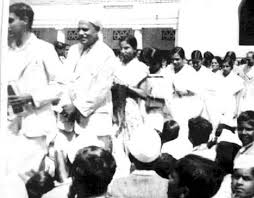The second session of Indian National Congress (INC) was held in Calcutta (now Kolkata) in December 1886, just one year after the formation of the Congress in 1885.

- Leadership: The second session was presided over by Dadabhai Naoroji, who became the second President of the Indian National Congress. He was one of the prominent early leaders of the Congress and played a crucial role in articulating nationalist demands and advocating for self-government for India.
- Objectives: The primary objectives of the second session were to continue discussions on issues related to the political and economic interests of India, to promote a sense of national unity among Indians, and to present a unified demand for greater representation in governance and civil services.
- Demand for Civil Service Examinations: One of the significant outcomes of this session was the resolution demanding simultaneous examinations in India and England for the Indian Civil Services. The British government’s practice of conducting the prestigious Indian Civil Service (ICS) examinations only in England created barriers for Indians to enter higher administrative positions in their own country.
- Concerns over Ilbert Bill: The session expressed serious concerns over the Ilbert Bill, which aimed to allow Indian judges to try European offenders in court. The bill faced strong opposition from the British community in India, and the Congress criticized the British government’s decision to amend the bill to placate European objections.
- Promotion of National Unity: The session aimed to promote unity among different regional and linguistic groups in India. It advocated for an inclusive approach to bring together people from various backgrounds to work collectively for the betterment of the country.
- Early Resistance: During the session, there were some disagreements among the leaders regarding the approach to be taken in dealing with the British government. While some leaders advocated a moderate and conciliatory approach to seek gradual reforms, others, like Dadabhai Naoroji, were already pushing for swaraj (self-government) and more assertive demands.
Overall, the second session of the Indian National Congress was a significant step in the early stages of India’s nationalist movement. It demonstrated the growing resolve among Indian leaders to address the issues of governance, representation, and civil rights, as well as their determination to work together for India’s progress and freedom from British colonial rule. The Congress continued to grow in subsequent years, evolving into a major force in India’s struggle for independence.